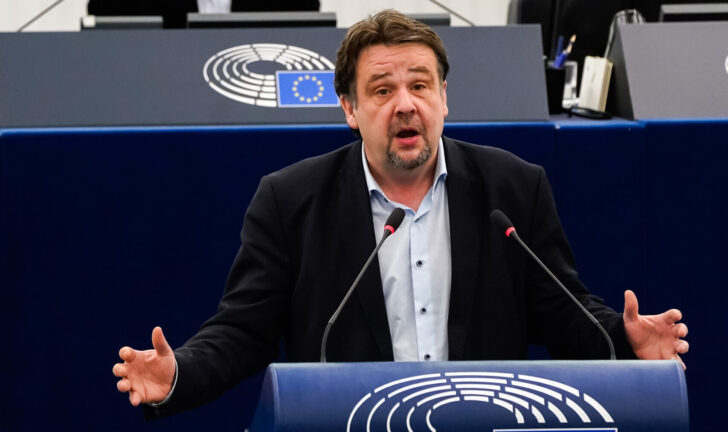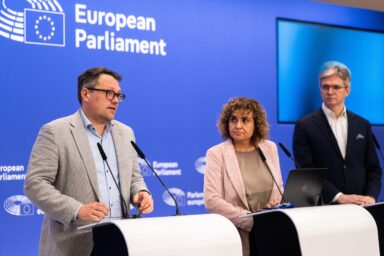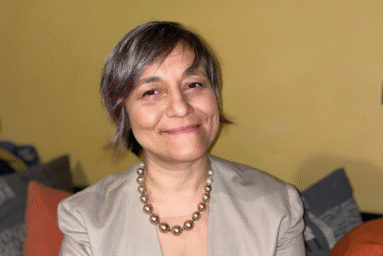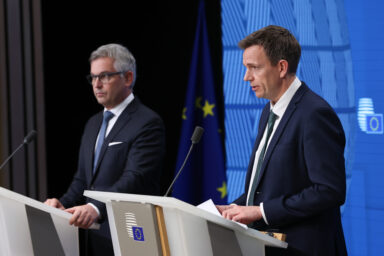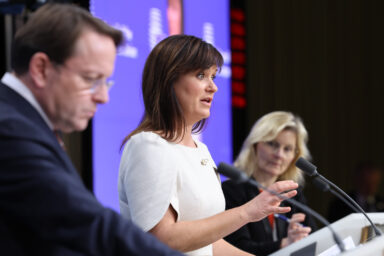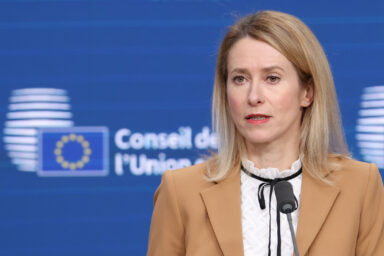The European Steel and Metals Action Plan is a step in the right direction, even if too timid and too slow. When Members of the European Parliament debated the European Commission strategy on 2 April, saving European steelmaking was waging a battle for their hearts and minds with environmental concerns. Most of them demanded that the bloc’s executive arm flex its muscle bolder and faster.
When the Commission presented its European Steel and Metals Action Plan to improve the beleaguered sector’s competitiveness on 19 March, it linked it explicitly to the Clean Industrial Deal, the Action Plan for Affordable Energy and the White Paper on European Defence, with the latter presented on the same day as the steel and metals strategy. The plan addresses the challenges, including high energy costs, global overcapacity, decarbonization needs, and regulatory burdens. It emphasizes the strategic importance of these industries for the EU’s economic security, defense, and technological sovereignty.
The plan is structured around six main pillars: ensuring access to clean and affordable energy, preventing carbon leakage, promoting and protecting European industrial capacities (including trade defense measures), promoting circularity for metals, defending quality industrial jobs, and the de-risking of decarbonization projects (including regulatory simplification).
The Commission is to adopt a delegated act on low-carbon hydrogen within weeks. In the course of the current quarter, it will issue guidance on network tariffs, and outline principles for anticipatory investments in grid projects. By the end of the year, the Commission is to unveil proposals to facilitate grid access for energy-intensive industries. Only next year, the controversial Emission Trading System and Carbon Border Adjustment Mechanism will be up for reviews.
You might be interested
A twofold goal
In the eyes of many an MEP, this is much too little, it transpired immediately after Adam Szłapka, President-in-Office of the Council and Commissioner Stéphane Séjourné, EC Executive Vice-President opened the Strasbourg plenary debate on the hot topic. “Europe’s share of global steel production has dropped to seven-to-eight per cent, and aluminium production is down to 3.8 per cent,“ Mr Szłapka said. To reverse the trend, “we urgently need faster development of clean technologies and support for manufacturing“, the Polish Cabinet minister added.
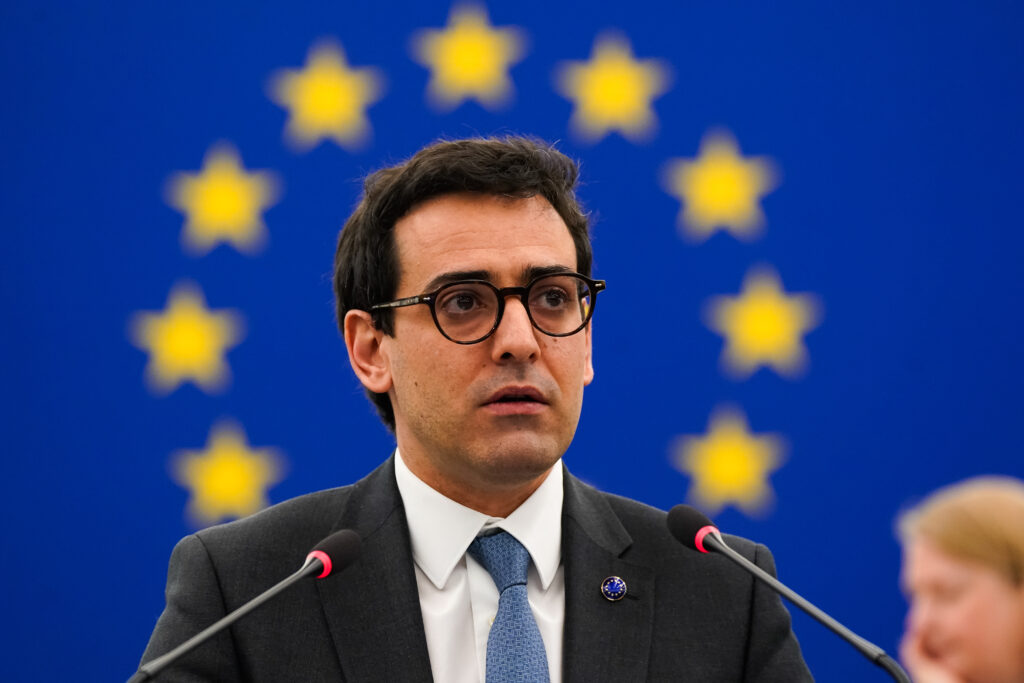
It fell to Mr Séjourné to present the Commission plan to the members. He extolled the virtues of the Clean Industrial Pact, lambasted “unfair competition from countries like China and others in Asia and the Middle East“, and explained the purpose of the steel-and-metals plan. “Our goals are twofold: immediate steps to boost competitiveness and long-term investments to decarbonise and modernise production,“ the French Renaissance politician said. „Key priorities include tackling energy costs through measures like electricity purchase agreements, reduced tariffs, and flexible taxes. We will also reform the Carbon Border Adjustment Mechanism, with plans to expand its scope and prevent circumvention. Additionally, we aim to safeguard EU production by strengthening steel safeguards and proposing new measures for aluminium if needed.“
The Members‘ responses, as usual, reflected their political affiliations closely, ranging from the European People’s Party displaying measured loyalty to the Commission to the some fringe figures’ searing dissent.
On behalf of the aforementioned group, Dennis Radtke (EPP/DE) highlighted its role in bringing the plan to life. “The plan comes late but I hope it’s not too late. The EPP has pushed for this plan due to pressures on the steel industry from overcapacity and high energy costs,“ the German Christian Democrat said. He emphasized the importance of affordable energy, modernising state aid rules to match current global competition, and developing markets for green steel.
Naïve, to say the least
“We cannot give grand speeches about resilience and independence from autocratic systems while idly watching Europe maneuver itself into a situation where China might ultimately decide whether our energy transition and industrial modernization can even happen here, and at what price,“ Mr Radtke warned.
„That is why (the plan) is long overdue. But even more crucial now is implementation. Against the backdrop of Trump’s policies and China’s dominance, we need robust trade defense tools. This is also why postponing CBAM is not enough. We must use these two years to fix its glaring flaws. Otherwise, this mechanism will only backfire,“ he was willing to give the Commission, if somewhat conditionally, the benefit of the doubt.
The second strongest group, the Socialists, had Dan Nica present their stance. The Romanian Minister of Internal Affairs offered his insight that European steelmaking had hit a rough patch, chiefly because of high energy prices, unfair competition and overblown regulation. He also had some harsh words for some of the current policies. “It is naïve, to say the least, that we export ten million tonnes of iron and aluminium scrap to countries that themselves ban scrap exports. I refrain from using stronger language,“ he said.
Mr Nica went on to scold the European Investment Bank for being lacklustre in its support of the bloc‘s industry. “The hope we share today hinges on funding. The European Investment Bank must finance EU steel and aluminium production plants, abandoning its current inappropriate and, frankly unacceptable, approach,” he did not shy away from criticising the institution.
Julie Rechagneux (PfE/FR) then spoke on behalf of the Patriots. She mentioned the only five blast furnaces surviving in her native France, 1,500 jobs at risk in Dunkirk, and 11,000 job cuts by the German ThyssenKrupp. The National Rally politician then criticised the plan on the grounds of its perceived indecisiveness. “(The plan) remains silent on three critical questions: How to produce green steel when carbon costs already make up 10 per cent of sale prices? How to leverage global overcapacity to bolster our reserves and secure supplies? And crucially, how to reindustrialize without funding upfront investments or modernizing our sites?”
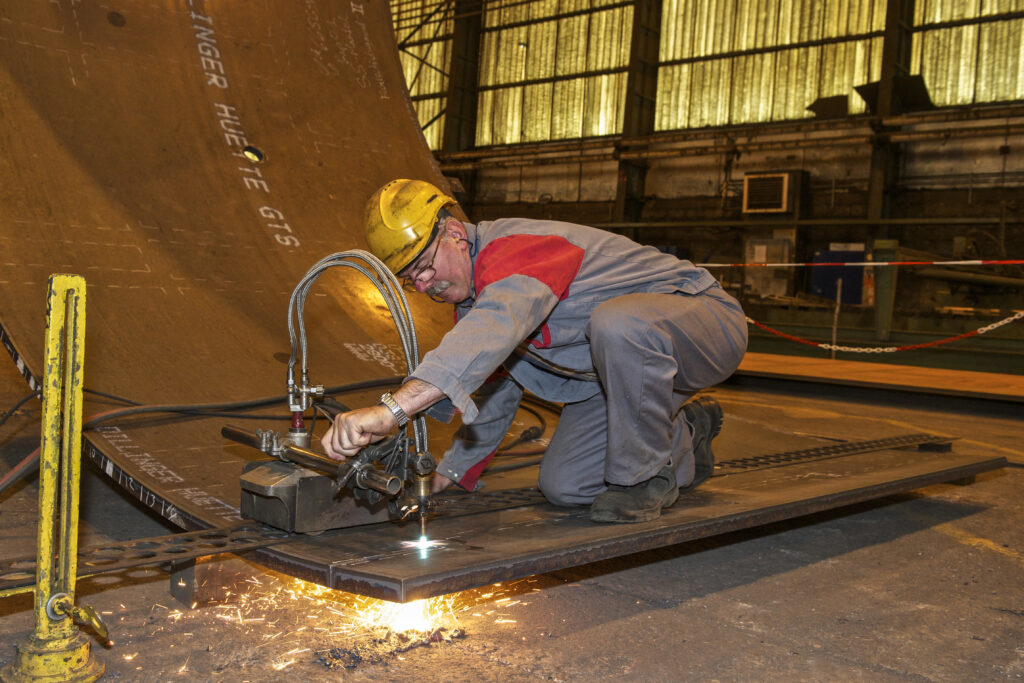
Elena Donazzan (ECR/IT), on behalf of the Conservatives, bemoaned what she saw as lack of action on part of the Commission. „The solutions proposed so far, Commissioner Séjourné, remain timid. We need bold, decisive steps. Revising the Carbon Border Adjustment Mechanism is critical, but we missed a key opportunity in the debate on energy-intensive industries. Decarbonization must embrace technological neutrality – multiple pathways, not rigid mandates,“ the Brothers of Italy figure recommended.
The specific and the vague
Speaking for the Renew faction, the French MEP Christophe Grudler was more forgiving. “The announced quotas and safeguards are steps in the right direction. But Commissioner, prepare to go further,“ the Democratic Movement politician demanded. “I propose three actions. First, accelerate low-carbon hydrogen from nuclear energy. Finalize the delegated act, and ensure nuclear power purchase agreements start by 2026. Next, open the Hydrogen Bank auctions to low-carbon hydrogen to guarantee competitive pricing. Finally, prioritize European green steel in public procurement and investments through upcoming legislation,“ Mr Grudler enlivened the debate through actually making a proposal of substance.
Bas Eickhout (Greens-EFA/NL), on behalf of his group, had a modicum of praise for the plan. “We need to put competitiveness and decarbonisation hand in hand. (…) And that’s also why we think this action plan is very good. All of its elements we welcome very much in the action plan,“ he said, before slamming the initiative for lack of speed and specificity. “However, to be very honest, the action plan is not very actionable now. The first real actions come in the fourth quarter of 2026. (…) There is no clear money in the proposal. So, we very much welcome the action plan, the analysis, all the elements in there. But now we need urgent action, action that needs to go faster than it’s being put there.“
Marina Mesure (Left/FR) offered an unorthodox piece of advice to the Commission: “To save this sector, we must go much further. First, embrace strategic protectionism. Second, regulate energy prices by exiting the EU electricity market,“ the France Insoumise member said.
René Aust (ESN/DE) then voiced his group’s stance, by far the most negative among all the parliamentary factions. “The EU Commission proposes an action plan for the steel and metals sector. But like all EU Commission plans, this one won’t bring freedom, just more paperwork. No relief, only new hurdles,“ the AfD politician summarily dismissed the plan, the Commission, and the entire Union. “Those of us fighting for a strong economy demand: End the micromanagement! The Carbon Border Adjustment Mechanism, forced labor regulations, GDPR, Supply Chain Directive – these may sound noble, but they divert businesses from innovation and production to compliance, red tape, and bureaucracy.“
Support, and some prodding, from the European People’s Party
The debate then moved on to the following stage, giving voice to individual Members. The plenary session used a new format featuring no speaker list. The Members braved the new format without batting an eyelid.
Christian Ehler (EPP/DE) was the first to take the floor. He offered a generally positive view of the plan, while taking a swipe at some of its opponents. “In these challenging times, the steel act is a positive signal. However, when I look at our friends from the AfD, whose populist allies in America are dragging the world into a protectionist trade war, we see the true global implications of right-wing industrial policies. If populists govern in America, they plunge the world into a trade war. I’m curious how their policies would play out in reality – though I’d rather not imagine it,“ the German Christian Democrat used his trademark eloquence to hit two birds with one rhetorical stone.
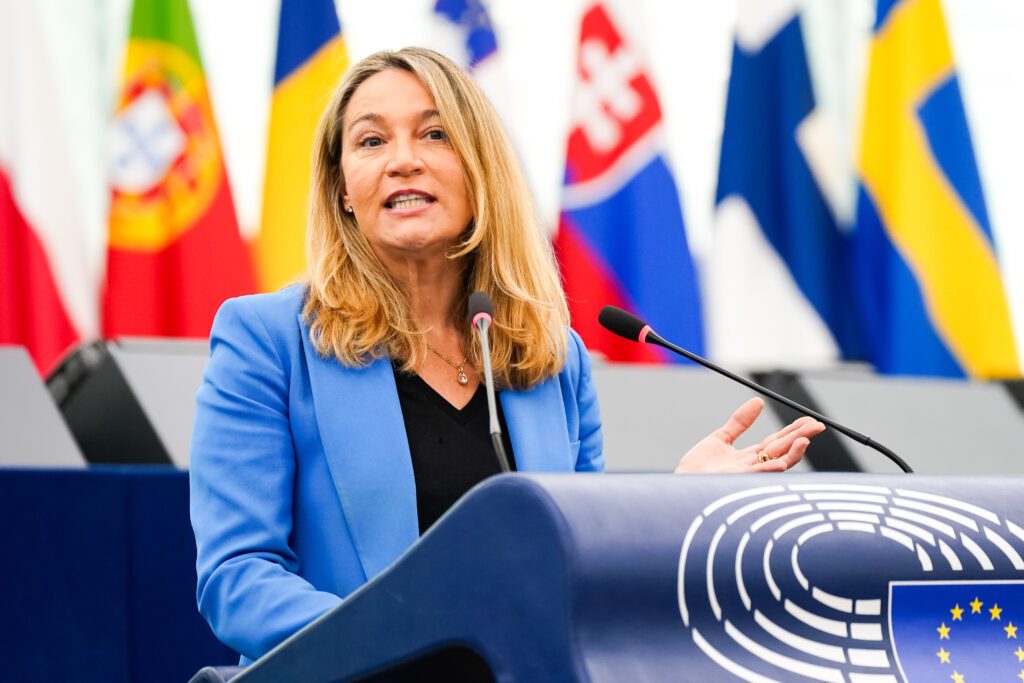
„The Commission’s commitment to practical, technology-neutral rules for low-carbon hydrogen is an indispensable signal for Europe’s steel and metals industries. Here, I’ll nudge Mr Eickhout: we count on Parliament’s cross-party support to ensure realistic delegated acts,“ Mr Ehler said.
His degree of loyalty towards the executive would later be echoed in his fellow EPP Members Adam Jarubas (PPE/PL) and Susana Solís Pérez (PPE/ES). “The plan is a step in the right direction. (…) We also welcome the Commission’s focus on the availability and export of EU metal scrap. This issue demands immediate action, including export restrictions to countries blocking scrap exports to the EU,” Mr Jarubas mentioned a frequently disputed issue.
Ms Pérez sounded a similar note. “Thank you, Commissioner Séjourné, for your commitment to finally deliver a plan to protect European steel. It is long overdue. (…) I also welcome the Commission’s belated steps to close loopholes in the Carbon Border Adjustment Mechanism, preventing evasion and shielding our exports,“ she said.
Socialists steadfastly green
Mohammed Chahim (S&D/NL) was more measured in his support. „The European Commission’s plan for the industry is a good step forward,“ he said, before adding that „but in my opinion, sometimes a bit too isolated. We still treat each plan as if it stands alone. But industry does not work in vacuums – we need coordination – and neither should this action plan.“ Mr Chahim then informed the session that “with a strong green lead market, green steel becomes an investment, not a risk“.
His fellow Socialist Yannis Maniatis (S&D/GR) was rather enigmatic, saying that “we need targeted support through a comprehensive EU action plan“, an assessment that seemed to be in line with the entire debate devoted precisely to such a plan.
His party colleague Bruno Tobback (S&D/BE) used the occasion to criticise the EU executive’s steel initiative and to defend the green goals that many others view as an antithesis to growth. “The Commission’s plan for the steel sector identifies the problem but delays real action. (…) The Commission chooses this moment to launch a pointless and technically contradictory debate on lowering climate targets,“ the Belgian MEP denounced the plan.
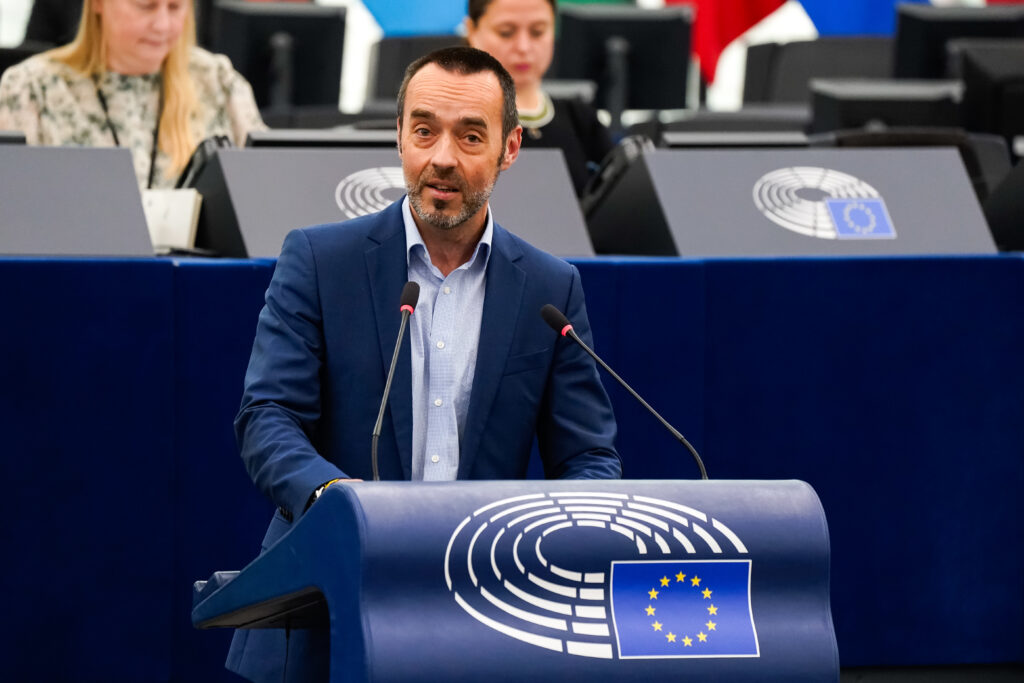
Oihane Agirregoitia Martínez (Renew/ES) was refreshingly specific in her demands. “We wish to emphasize three concrete demands: First, addressing energy costs and improving infrastructure. Earlier, we met with Energy Commissioner Mr Jørgensen and urged the same: collaboration across institutions and alignment with the European Court of Auditors’ recent report on this issue,“ she said.
“Second, protect European products. New tariffs taking effect today will impact us again. The Carbon Border Adjustment Mechanism has been mentioned – we need swift, decisive action on this front. Third, immediate incentives for companies leading the way,“ Ms Agirregoitia insisted.
The usual suspects then heaped criticism on the Commission by the truckload. The debate appeared to find several Members from Poland in a particularly resolute mood. “I would like to thank the Commissioner for his excellent work,“ Jadwiga Wiśniewska (ECR/PL) said with a generous dose of irony. “(The plan) does not sufficiently address the high energy prices for energy-intensive industries, which are a consequence of the EU’s harmful, ideological climate policy.“
“Like communism!”
Her compatriot, the non-attached MEP Tomasz Buczek (NI/PL) also opted for some strong word choices. “(The plan) reveals, as if through a magnifying glass, the looming Armageddon of a collapsing industry,“ he used a Bible reference, a rare occurence in the European Parliament. “The Commission acknowledges the dire situation in this document, yet it continues to fanatically charge ahead with decarbonization. (…) Brussels sees and understands the crisis – yet refuses to retreat even slightly from its green delusion.“
The Polish ex-Prime Minister Beata Szydło (ECR/PL) and Petr Bystron (ESN/DE) then used their Blue-Card exchange to excoriate the Green Deal in particularly bitter terms, comparing it to communism.
Other debaters presented less inflammatory arguments. Letizia Moratti (PPE/IT) emphasized the risk to competitiveness due to carbon costs and unfair competition. Marie-Pierre Vedrenne (Renew/FR) talked about the historical significance of steel and the need for a strong industrial base. For Jens Geier (S&D/DE), the key points were the acknowledgment of the action plan’s strengths and the criticism of the electricity market design. Angelika Winzig (PPE/AT) provided a positive example from Austria’s steel industry, highlighting green investments. Nicolás González Casares (S&D/ES) linked industrial policy to geopolitical issues, criticizing anti-EU factions.
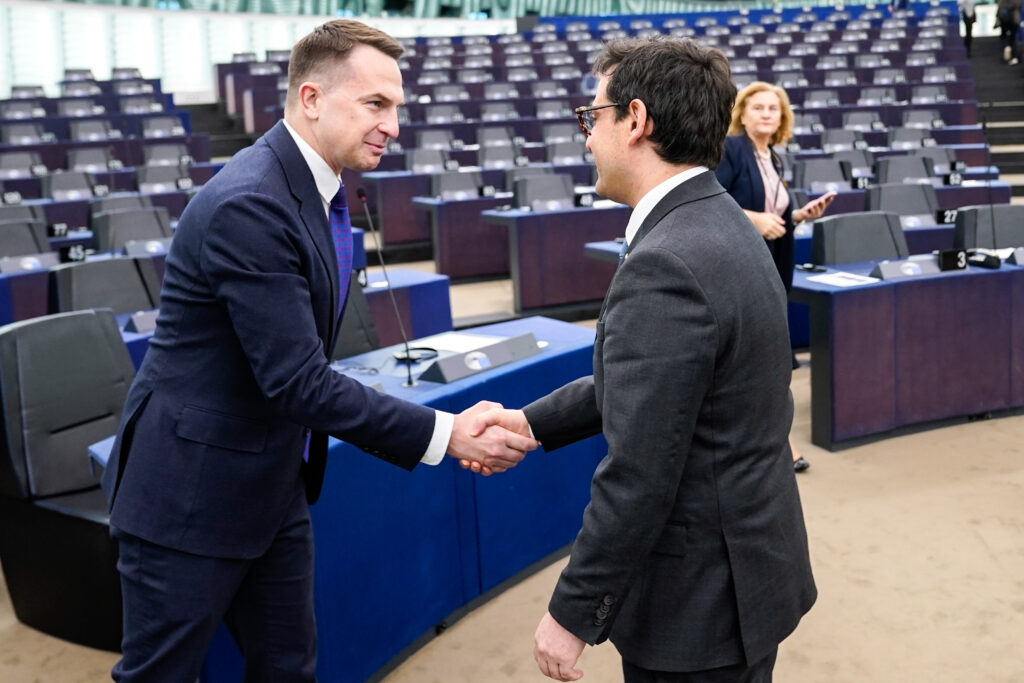
Commissioner Séjourné then duly acknowledged the urgency of the matter, while rebutting criticism of the Green Deal. “We are going to work on the competitiveness factors for our industry, and we will go down this road with the support of the Parliament,“ the EC Executive Vice-President said hopefully.
